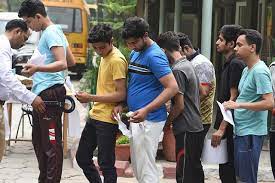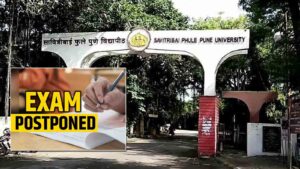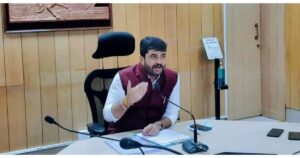Debate on standardized exams intensifies on social media: Exams like JEE, NEET, and UPSC significant?

Representational pic
The significance of standardized exams like JEE, NEET, and UPSC has recently sparked a heated debate, with prominent figures expressing contrasting views on their efficacy and impact. Gaurav Munjal, CEO of Unacademy, stood firm in defense of these exams, hailing them as India’s finest creations and essential components of a fair and orderly education system.
Munjal’s remarks drew criticism from Mumbai-based doctor Aniruddha Malpani, who argued that these exams often favor affluent candidates and fail to consider the struggles of countless aspirants who invest years preparing but fail to secure admission. Malpani questioned their efficacy and highlighted their potential to stifle human potential and opportunity.
Okay. Next time you go to a Hospital / please ask for a Doctor who got Admission through Management Quota and not NEET.
— Gaurav Munjal (@gauravmunjal) March 22, 2024
These Exams are merit based / they are probably the best Products that India has created.
I know of so many people whose lives changed because they cleared…
The exchange between Munjal and Malpani ignited a broader conversation among users on X, with some proposing reforms to limit exam attempts and lower age criteria to facilitate greater opportunities for success. Others defended the exams, acknowledging their role in providing a level playing field for aspirants, albeit imperfectly.
The debate further intensified following comments by Sanjeev Sanyal, a member of the Economic Advisory Council to the Prime Minister, who criticized the prolonged dedication of individuals to exams like UPSC, IIT-JEE, and NEET. Sanyal argued that such extensive preparation is a misuse of youthful energy and advocated for redirecting efforts towards alternative fields.
Sanyal’s remarks underscored broader concerns about the societal impact of extensive exam preparation, particularly in cities like Kota, where resources are heavily devoted to coaching centers and only a fraction of applicants succeed each year. He emphasized the need to reconsider the allocation of resources and redirect efforts towards fields that offer greater societal benefit.
The ongoing debate reflects the complexities surrounding standardized exams and their implications for individual aspirations, societal expectations, and educational systems. As stakeholders continue to voice their perspectives, the discourse on the role and relevance of these exams in shaping India’s education landscape remains a topic of significant contention and deliberation.










